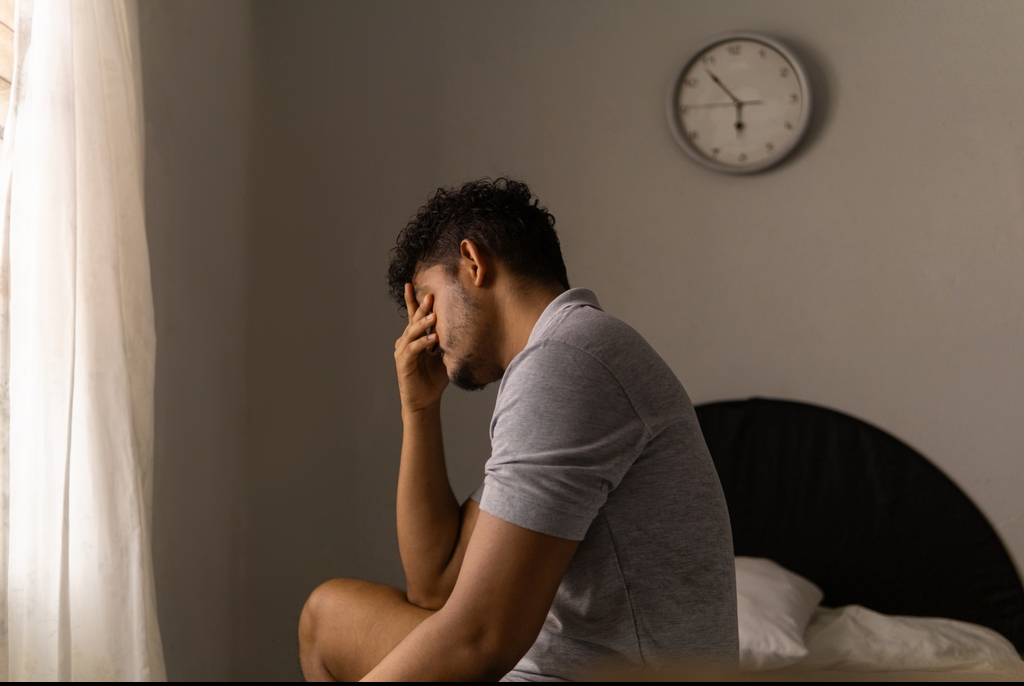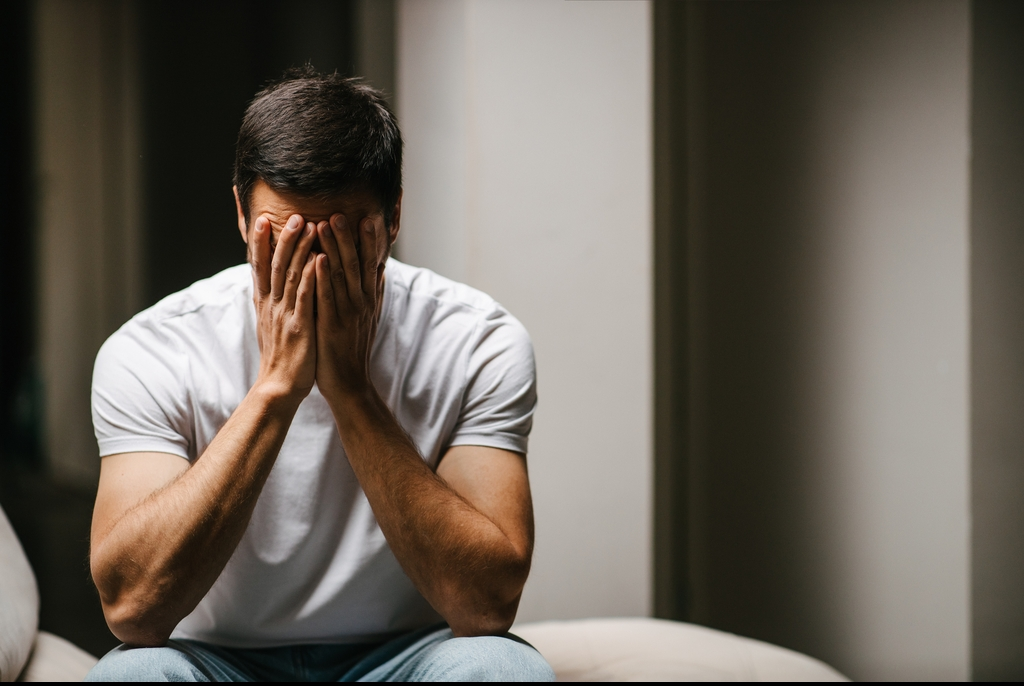Self-pleasure can offer benefits like stress relief, improved sleep, and enhanced mood. However, a recent warning from Dr. Donald Grant, GP and senior clinical advisor at The Independent Pharmacy, suggests that overindulgence may have negative impacts on men’s health. Dr. Grant explains that while there isn’t a specific guideline on how much is too much, excessive self-pleasure can contribute to various physical and mental health issues, especially when combined with overconsumption of ex****** content.

The Growing Concern Around Self-Pleasure and Health
In recent years, the easy availability of ex****** content has led to an increase in self-pleasure habits. According to a survey by media regulator Ofcom, nearly half of adults in the UK regularly access online ex****** content, which has contributed to a rise in certain health issues, such as p****graphy-induced erectile dysfunction (PIED). This is becoming a pressing concern, as Dr. Grant suggests these habits may have broader health implications than many realize.
The Link Between Self-Pleasure, P****graphy, and Erectile Dysfunction
Excessive use of ex****** content has been linked to PIED, a type of erectile dysfunction that’s different from ED caused by physical health issues like obesity or high blood pressure. PIED occurs when prolonged exposure to ex****** content leads to desensitization, making it challenging to achieve arousal or satisfaction from real-life intimacy.
Dr. Grant elaborates: “Unhealthy p*rn usage can lead to desensitization, which makes it more difficult for men to maintain an erection with actual partners. They may develop a preference for the intensity of what they see on-screen over real-life experiences, which can result in reduced interest in intimacy with partners.”
Physical Health Implications of Excessive Self-Pleasure
Self-pleasure, in moderation, is generally considered harmless. However, Dr. Grant warns that compulsive behavior can lead to certain physical changes, including reduced sensitivity and even temporary nerve damage in the genital area. Over time, these issues can make it more challenging to achieve pleasure or stimulation during intimacy.
Dr. Grant explains, “When individuals engage in self-pleasure too often or too roughly, nerve endings can become damaged, which leads to a reduction in sensitivity. This can create challenges in real-life intimacy and, in some cases, affect one’s ability to achieve arousal.”
The good news? Dr. Grant notes that many of these issues are reversible. “Taking breaks and using lubricants can help restore sensitivity, and a range of treatments are available for those struggling with erectile dysfunction. These solutions can help men maintain a healthy s** life and improve their physical experiences.”
Mental Health and Emotional Impact
Aside from physical concerns, Dr. Grant points out that excessive self-pleasure can also lead to mental health challenges. When self-pleasure becomes a compulsive habit, it can result in feelings of guilt, shame, and even depression. This emotional toll can be especially significant if combined with performance anxiety in intimate settings.

“Overindulgence can cause men to become hyper-focused on their own pleasure, which may result in performance anxiety with a partner. This often leads to lower self-esteem and can impact s** drive over time,” Dr. Grant explains. “Feelings of guilt and shame associated with excessive habits, particularly when linked to p****graphy, can also take a toll on mental health.”
How Much Is Too Much? Finding a Healthy Balance
There’s no one-size-fits-all answer to how much self-pleasure is healthy or excessive. Frequency varies widely between individuals—some may engage in the activity daily, while others may go for longer periods without it. Dr. Grant encourages individuals to monitor their habits and consider whether they interfere with their daily lives, relationships, or work.
Dr. Grant notes, “Discomfort or injury is often a telltale sign that self-pleasure has crossed a threshold that’s detrimental to health. It’s important to pay attention to these signals and adjust accordingly. And if the habit is interfering with day-to-day life, it’s worth evaluating the impact it may be having.”

Signs of Compulsive Behavior and When to Seek Help
Dr. Grant highlights that compulsive behavior around self-pleasure is more common than many may realize. In extreme cases, individuals may experience symptoms such as:
- Difficulty focusing on daily tasks due to intrusive thoughts
- A preference for self-pleasure over intimacy with a partner
- Physical discomfort or injury due to overuse
- Feelings of guilt or shame that impact mental well-being
If any of these signs sound familiar, it may be time to consider speaking with a healthcare provider. There are various treatment options available, ranging from therapy to medication, to help manage symptoms and support a healthy, balanced lifestyle.
The Importance of Open Communication in Relationships
In situations where excessive self-pleasure is affecting one’s relationship, Dr. Grant recommends open communication with a partner. Discussing these issues can help reduce anxiety and improve overall intimacy. For individuals experiencing PIED or related challenges, having a supportive partner can play a significant role in recovery.
Dr. Grant advises, “For those concerned about PIED, it’s essential to speak openly with your partner. Reducing anxiety around intimacy and working through these issues together can lead to better outcomes and a stronger relationship.”
Managing and Overcoming PIED
For men experiencing PIED, various strategies can help restore s***** function and improve relationships. Here are a few recommended approaches:
- Reduce or eliminate p****graphy consumption: Cutting back on ex****** content allows the brain to reset, which can improve sensitivity and responsiveness in real-life situations.
- Seek professional guidance: Consulting a therapist or counselor who specializes in s***** health can help address underlying issues related to PIED.
- Explore healthy lifestyle changes: Exercise, a balanced diet, and good sleep habits can enhance overall well-being, which often has a positive impact on s***** health.
- Consider medical treatment: If lifestyle changes don’t bring about improvement, medications for ED, such as those prescribed by a healthcare provider, can offer additional support.

Conclusion: Striving for Balance and Well-being
While self-pleasure can be a healthy part of life, it’s essential to keep it in balance. Excessive behavior can have a range of physical and emotional consequences, from reduced sensitivity to performance anxiety and mental distress. Dr. Grant’s insights highlight the importance of self-awareness and moderation, encouraging men to evaluate their habits and seek help if needed.
Remember, a healthy s** life is about finding balance and making choices that support both physical and emotional well-being. So, if you or someone you know is concerned about the impact of excessive self-pleasure, consider these tips and reach out to a healthcare professional for guidance. Taking steps to manage these habits can help improve quality of life and strengthen relationships, ensuring a healthier, happier future.


